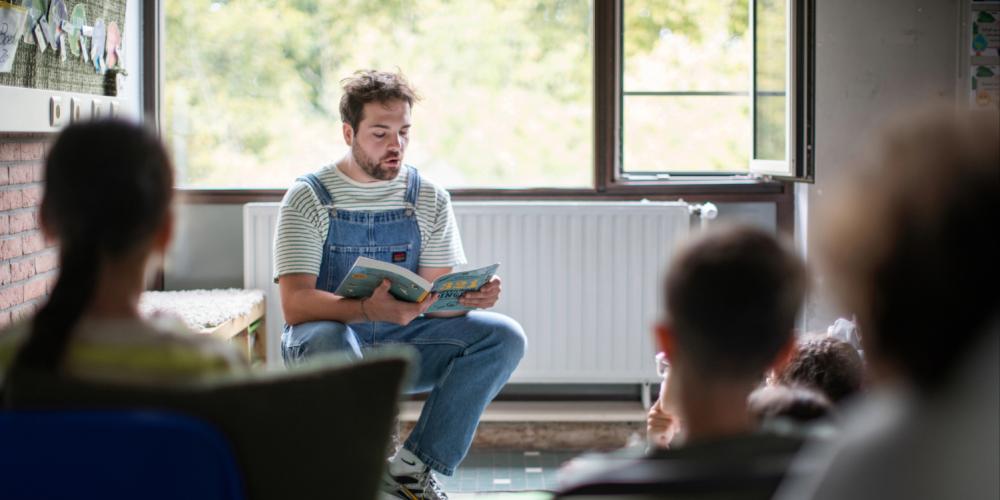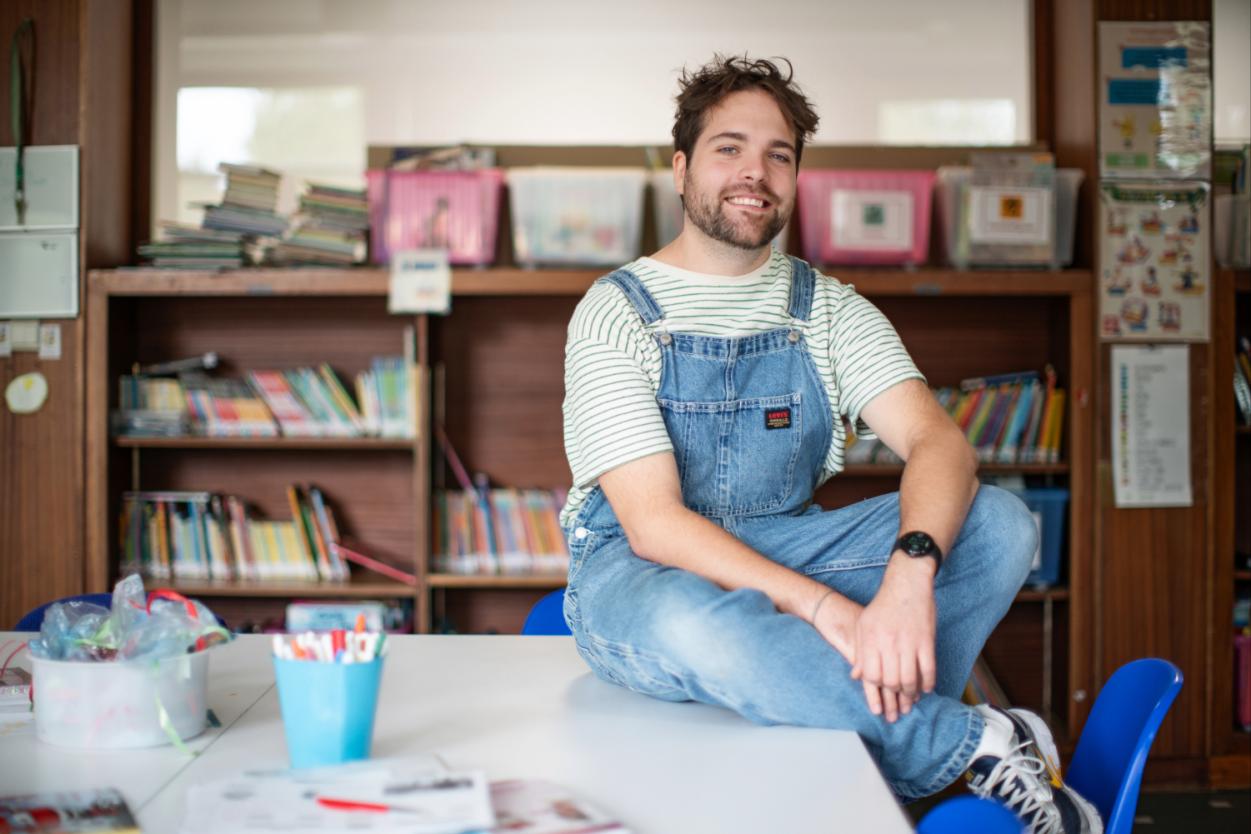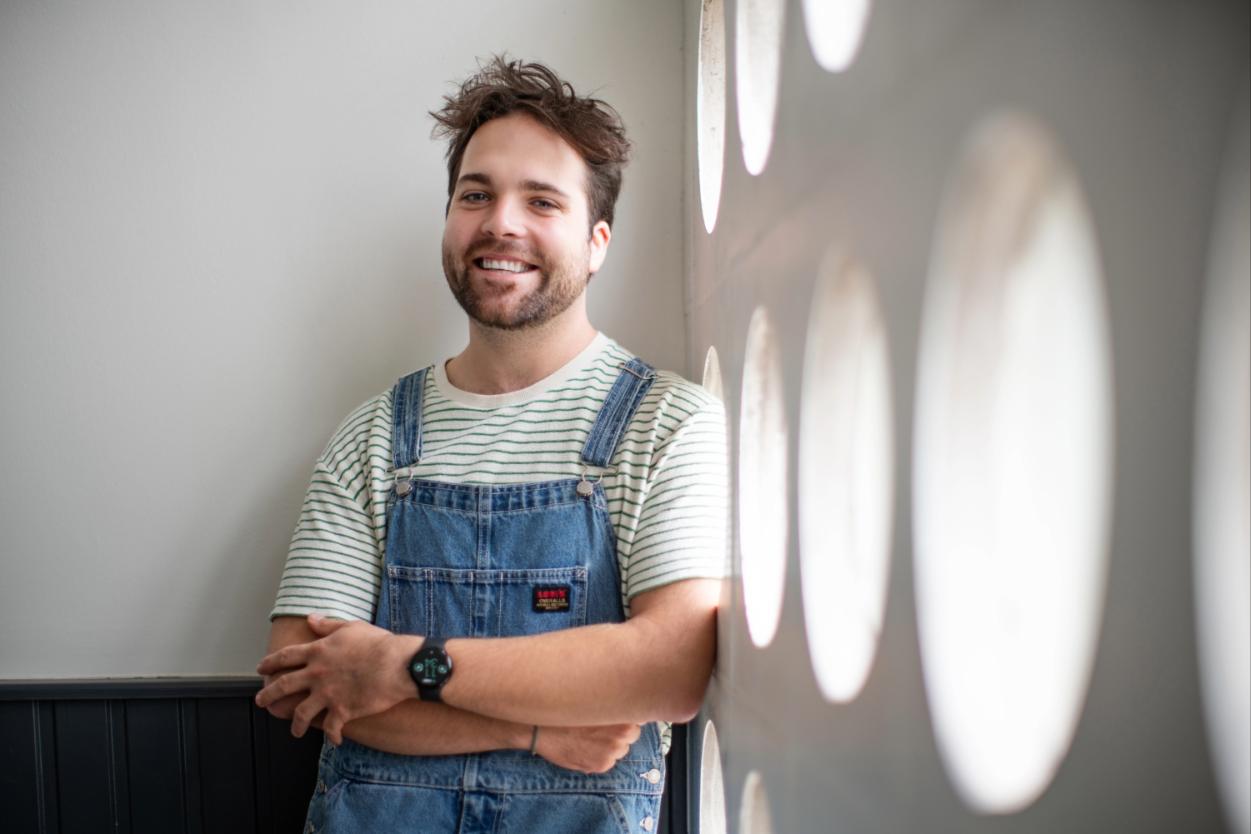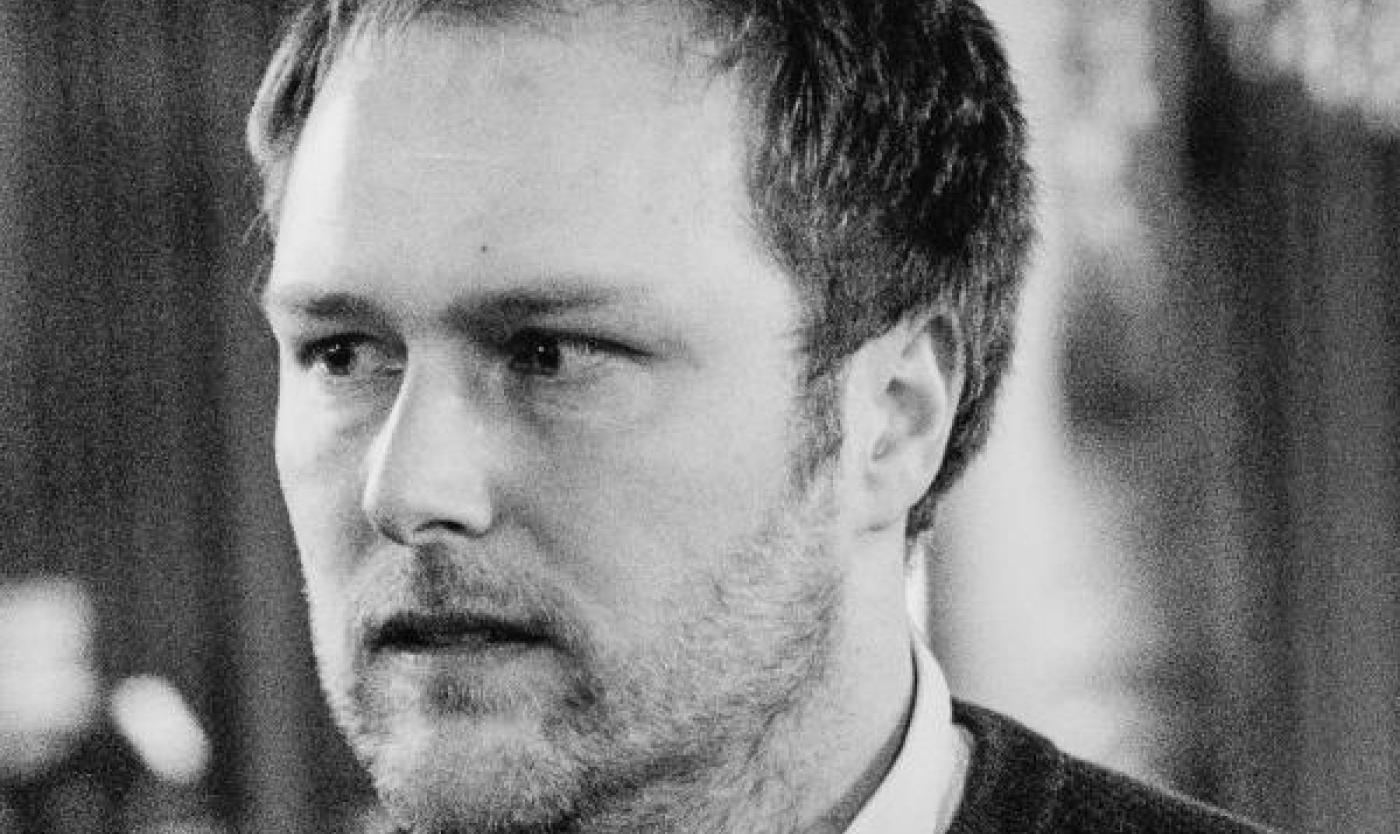
Last academic year, the Vrije Universiteit Brussel (VUB) launched the Master of Primary Education — a Dutch-taught programme designed for kindergarten and primary school teachers who want to deepen their expertise and explore their own teaching practice through a scientific lens. Frederik Steyvers has been teaching for six years at GO! primary school De Mozaïek in Schaerbeek, and began the programme last year.
What motivated you to start the programme at VUB?
“I wanted to gain more knowledge because I realised I was mostly teaching on instinct, trying things out as I went. I felt the need to dig deeper, to check whether what I was doing in the classroom actually worked. I wanted to give my teaching a stronger foundation, improve my skills, and challenge myself to innovate. The lessons already offer plenty of insights that I can take back to school. Perhaps not all academic skills from the bridging programme in the first year were immediately applicable in class, but the master’s courses definitely are. The assignments are directly linked to your classroom practice, to your own school.”

"I did my teaching placement at a village school — a good experience, but I felt I could make a greater impact in Brussels"
Why did you want to become a teacher?
“It’s something I’ve wanted to do since I was a child. After secondary school, the choice was obvious — and quite easy. Working with children and being able to make a difference for them simply suits me.”
It’s not that common for a child to already know they want to teach. Did you have an inspiring example?
“I really enjoyed my time at school — I look back on it with great fondness. My geography teacher in secondary school taught in such a natural and captivating way that he managed to engage every student. During one of his lessons I thought: this is how I want to teach one day.”
Was teaching at De Mozaïek a deliberate choice?
“It was definitely a conscious decision to teach in Brussels. I did my internship at a village school — a good experience, but I felt I could make a greater impact as a teacher in Brussels. And of course, I’ve always liked the city itself.”
Do you plan to take a different direction once you’ve completed your master’s degree?
“That’s not my intention at the moment. In time, I’d like to help shape school policy and develop a vision within the school. Still, I don’t think I’ll stay in the same job until I retire — the teaching career is quite flat, and I’m a bit too ambitious to do the same thing all my life.”
How do you combine teaching with studying?
“I spread the bridging programme over a year and a half, and I’m already taking a few master’s courses. The VUB has designed the programme mainly for evening and Wednesday afternoon classes, which makes it very manageable. Some courses, such as psychology, are taken together with other VUB students. Those are held during the day, but there are alternative options to follow them at another time.”

“In primary education, no one is paid according to their qualification level — not even with a master’s degree”
Are there particular challenges at your current school?
“I now teach a fifth-year class with 26 pupils, of whom only one speaks Dutch at home. That’s a fascinating challenge to work with. It means those language barriers also affect other subjects. But I firmly believe that the children in my class are just as capable as Dutch-speaking pupils. The issue is that they struggle with understanding questions linguistically. We need to be very aware of that. At a young age, that language gap might seem manageable, but later it only widens.”
There’s been some uncertainty around salary adjustments for teachers with a master’s degree.
“To be clear: money isn’t my main motivation. But I do hope the plans to reward teachers with a master’s degree go through. If we want more expertise in the classroom, there should be fair pay in return. In primary education, nobody is paid according to their degree — not even with a master’s diploma. That’s unfortunate, because it might discourage career switchers who already hold a master’s, even though the need for qualified teachers, especially in Brussels, is so high.”
Joost Vaesen and Els Consuegra coordinate the Master of Primary Education through the Multidisciplinary Institute for Teacher Education (MILO). “To meet the needs of primary education in Brussels, we need deep expertise and strong competencies,” they explain. “The master’s programme adds that advanced level to the existing teacher training courses.”
Els Consuegra
Why is there a need for a master’s degree in primary education?
“The strength of our programme is that, in addition to regular courses, we provide deeper theoretical frameworks and encourage critical reflection on teaching materials. There’s also a strong component focused on academic research skills. We developed the programme together with the Erasmus University College Brussels and created mixed teaching teams. The focus on Brussels and its wider surroundings is intentional — we want to see superdiversity not as a problem but as an asset. Our partner schools encourage us to take that approach. It’s great to see that many of our students are already active in Brussels schools, which benefits both them and our partners.”
“The focus on Brussels and its wider surroundings is very deliberate — we want to see superdiversity not as a problem, but as an asset”
How does the programme tackle this in practice?
“For many teachers, the biggest challenges are administration and classroom management — but also, crucially, working with diversity. That’s why we’ve designed the programme specifically with those realities in mind. Many teachers want to play a role in change and see education as a driver of transformation.
In this master’s, we work together to find practical tools to address those challenges. By combining teachers’ hands-on experience with insights from academic research, they can develop solutions for the everyday issues they face at school. How do you create an inclusive learning environment in a superdiverse context — one that fosters both excellence and equal opportunities? That’s demanding work, and it requires pooling different forms of expertise. We don’t position ourselves as experts telling teachers what to do — we meet as equals.”
Practical knowledge seems central to the programme. What do you expect from students in that regard?
“We designed the practical assignments together with partner schools, so that they can have an immediate impact there. Teachers, school leaders or quality coordinators already working in primary schools can carry out part of their coursework directly for their own school. That’s the kind of win-win we aim for. It’s a practice-oriented degree, but it’s also about academic skills. The transition from working in a school or holding a professional bachelor’s degree to studying at university can be a big step, so we guide students through it. Everyone has an intake interview, there’s a dedicated assistant as a fixed point of contact, and we invest in a student network so they can easily consult with each other. They can discuss questions with peers — something they might not always find at their own school.”
“We’re not the experts telling teachers how to do their job; we meet each other on equal footing”
Will teachers be compensated according to their degree once they’ve completed the master’s?
“At the moment, the teaching career path is rather flat — that’s a well-known issue, especially in Brussels and other cities. There’s a much higher proportion of teachers with little experience. That’s unfortunate, because it means the least experienced teams are often working in the most challenging contexts.
If there were a bonus for working in diverse urban schools, it could help address that flat career structure. Teachers with a master’s degree clearly add value in practice. They often strengthen schools as teacher leaders — guiding change, mentoring new colleagues, and critically examining new teaching methods. Schools really need people who can take on those roles.
Unfortunately, the discussion about teaching careers has been delayed. According to the latest statements from Minister Demir, it should be clarified later this autumn.”

Joost Vaesen
“With a bonus for working in those diverse urban schools, we could address the problem of the flat career structure”
Could the lack of a clear framework discourage master’s graduates from staying in education?
“Our first cohort of master’s students will graduate in June. If the new framework isn’t in place by then, we fear losing some very strong profiles from the teaching field. That said, it’s heartening to see that many students have taken the leap despite the uncertainty. Their motivation is primarily to learn and to strengthen their practice — but it’s only natural to want to work at a master’s level once you’ve earned that degree. I think the minister understands that the primary sector needs this kind of reinforcement, and that a master’s programme can help deliver it.”